- Home
- All Creepers & Climbers
- Trachelospermum jasminoides - Creepers...
Trachelospermum jasminoides - Creepers & Climber





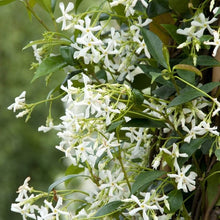
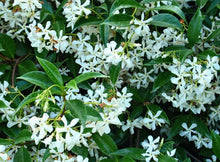
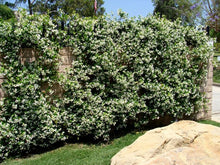
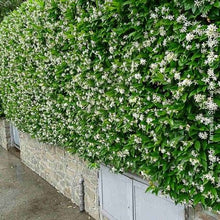
Trachelospermum jasminoides - Creepers & Climber




Damaged or lifeless? We’ll replace it for free. Learn more
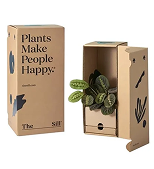
Double layered custom boxes to protect plants during shipping.
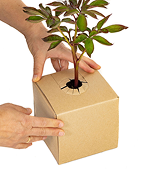
Air vents for proper air-flow
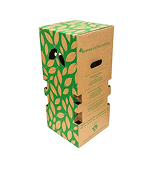
To preserve plant freshness during transit
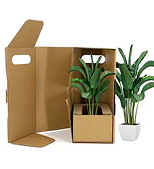
Details steps of how to grow and maintain your plant
The scientific name of the Rhyncospermum is Trachelospermum jasminoides from Apocynaceae family. It is a climbing shrub, composed mostly of tropical and subtropical plants moreover it has a particular resistance to even harsh climates.
it is proposed as a wall or trellis climber, or with a structure that conforms it to a sapling. In the latter case, it must be maintained with subsequent pruning, which however will not compromise the blooms. We are talking about an evergreen perennial with paired woody stems which, without support, take on a shrubby behavior becoming drooping.
If it is grown on support, its branches can reach lengths of up to ten meters. Because it has a fast growth, it is used to create green walls and screens, on which the showy and fragrant white flowers stand out. These are very similar to those of jasmine, gathered in bunches of 8-10 with a star-shaped corolla and five-petalled tubular, hermaphrodite; emerge on the new vegetation of the current or previous year.
Selected plant of 8-10 inches
Planted into a 5-inch pot
With healthy, moisture-retaining soil
A care instruction sheet for maintenance guide

Get in touch for best pricing on bulk orders and landscaping projects.
 WhatsApp us
WhatsApp us

Call on 9177805454 (Mon-Sat, 9 AM-6 PM) or WhatsApp us – we’re here to help.
About Exotic Flora
At Exotic Flora, we’re passionate about bridging the gap in bringing plants to everyone. With over 500+ varieties across 7 plant categories, from exotic finds to everyday greens, we bring the entire range to you.
Our plants, sourced from all parts of India are nurtured at Kadiyam, in our 25 acres in-house nursery by a team of expert horticulturists. Once they are ready we ship all our plant varieties across India.
Our services go beyond safe delivery of plants. A dedicated support team is there to help you with any maintenance queries you may have.
At Exotic Flora we always believe in going that extra mile, because everyone should have the plants they love.
It grows horizontally. Creepers are plants with stems that grow along the ground, around another plant / on a wall by means of extending stems or branches.
It grows vertically. Climbers are plants with a tender stem that grow with the help of external support. They climb over the other by twine or hook from their leaves & stems.
It depends on the plant varieties and the available space for spreading. In General, a creeper can spread up to 15 meters.
Perennial creepers/climbers are plants that live or grow for a long time (more than a year)
List of plants that can also grow in Indirect bright light is All money plants, Pink wall creeper, All thunbergia, Ipomoea cairica & Ipomoea black, Hari Champa, Cissus nodosa, Mandevilla, and Trachelospermum jasminoides.
Minimum 3 years needed for a creeper plants to cover 5-10 meter of walls. But it also depends on the Plant care and plant variety.
It is always good to read both together, Creepers grow horizontally, it creeps on the ground whereas Climbers grow vertically by external support by their twine, tendrils, and other supportive structure.
Minimum 4-6hours of direct bright light are necessary for flower plants to produce flowers. The soil should be well-drained, fertile, and organic in nature, the sandy-loam soil is the best soil for flowering plants.
The best Fertilizers are Organic fertilizers & Organic compost, manure to apply to your flowers. Remember Phosphorus based fertilizers are best to produce more flowers. Look at the descriptions of each plant for plant care guidelines.
There are some creepers like Curtain creeper, Elephant creeper, Dolichandra unguis cati, Thunbergia, Passion flower, Wall creeper, Ipomoea etc, are very suitable for making privacy or providing like structure for shade purpose.